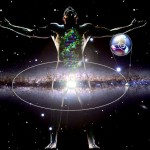 Reality is existence, and existence is everything. Every theory of everything must start there.
Reality is existence, and existence is everything. Every theory of everything must start there.
There’s existence, and there’s essence. These two things are separate but not separable.
In the language of Thomas Aquinas, esse (or essence) is identity: To be, in other words, is to be something.
The conclusion is inescapable because (as Aristotle noted) the only alternative to that which exists is that which does not exist. But that which does not exist doesn’t exist.
“There is no nothing,” said Victor Hugo.
Nothing, by definition, is not something.
The only alternative to reality, therefore, is unreality, which, as the very word implies, is not real — i.e. which isn’t.
These principles form the fundamental laws of metaphysics — metaphysics being the study of ultimate reality (meta for “beyond” and physics for “physical reality”).
New-Age pseudo-philosophy has unfortunately bastardized and perverted the term metaphysics, but please don’t be duped. Nothing is more important than metaphysics. It is the highest part of philosophy, the part from which all others derive, the science of “being as being.”
The universe (paraphrasing Thomas Aquinas) is the sum of everything that exists. That’s what the universe is. That’s not what it may be, and that’s not what some people might think. That’s what the universe actually is.
The universe is everything. There can thus not be “the possibility of many universes,” as many modern physicists would have us believe.
Nor is there anything “beyond the universe”:
If something exists, it is by definition part of the universe.
If it does not exist, it does not exist.
Metaphysically, the fact of existence is the peg upon which the entirety of human knowledge hangs.
Without it, knowledge degenerates into a buccal-fecal carnival of solipsism, skepticism, postmodernism, and relativism.
The proper defense of independent reality is as follows:
Any attempt to deny existence refutes itself at the outset, because even the barest, most laconic denial of existence implies some kind of existence.
Quoting the man Dante called “the master of him who knows”:
“Why a thing is itself” is a meaningless inquiry, for the fact or existence of the thing must already be evident … but the fact that a thing is itself is the single reason and the single cause to be given to all such questions as “why is man man” or “the musician musical” (Aristotle, Metaphysics 7.16.1041a15-18).
And again:
He who examines the most general features of existence, must investigate also the principles of reasoning. For he who gets the best grasp of his respective subject will be most able to discuss its basic principles. So that he who gets the best grasp of existing things qua existing must be able to discuss the basic principles of all existence; and he is the philosopher. And the most certain principle of all is that about which it is impossible to be mistaken… It is clear, then, that such a principle is the most certain of all and we can state it thus: “It is impossible for the same thing at the same time to belong and not belong to the same thing at the same time and in the same respect” (Aristotle, Metaphysics, 1005b12-20).
In support of which, his pupil, Thomas Aquinas, added this:
Nature is what we call everything that can in anyway be captured by the intellect, for a thing is not intelligible except through its definition and essence…. All around us are existing things. They are certainly different, but they all exist.
Metaphysically, then, the facts are these:
Existence is everything.
There is no nothing.
Existence is reality.
Reality is what’s real.
Nature is reality.
The universe is everything.
Nature is the universe.
There is no “super-nature.”
All else proceeds from that.
